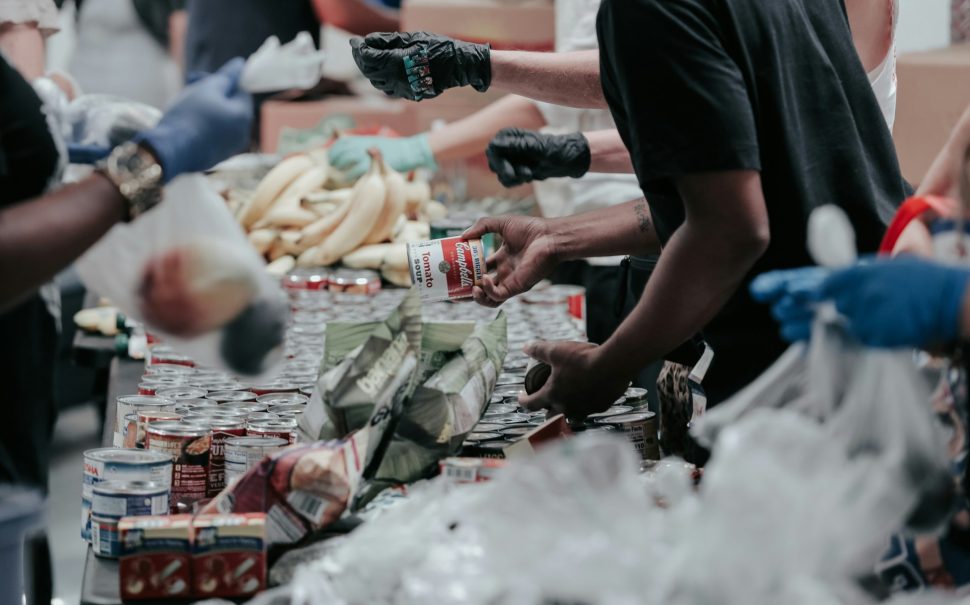Food bank parcels distributed in London are at a higher level now than at the peak of the pandemic, Trussell Trust data shows.
The number of food parcels distributed in London in the year before the pandemic hit was 204,355.
This number had more than doubled at the height of lockdown to 423,214 and is now higher than ever, surging to 454,750 between 2023 and 2024.
It comes amid reports that almost one in five people claiming universal credit and disability benefits used a food bank towards the start of this year and as the government released in its Spring Statement plans to slash welfare benefits by £5bn before the end of the decade.
Sarah Hope, who regularly volunteers at her local Salvation Army food bank, told South West Londoner these new statistics by the UK-based Christian food aid charity did not shock her.
She said: “Very sadly, it doesn’t surprise me that the use of food banks has risen dramatically since Covid, of course, because of the upsurge in the cost of living.
“I think some people have now become completely reliant on the food parcels, and food banks tackle the issue of hunger without addressing the root causes of it.”
Hope said that the normalisation of food banks minimises a sense of urgency for society to act on the deep-rooted causes of food insecurity.
Experts agree with Hope that food banks have increasingly become a semi-permanent fix, or ‘sticking plaster’, for severe food poverty in the UK.
Food insecurity worsened during Covid-19, when food banks were unable to bulk-buy food staples from supermarkets as non-food bank users stockpiled supplies, with Sainsbury’s pasta sales rising by 240%, and sales of UHT milk by 110%.
Post-Covid, worsened living costs have seen demand for food banks skyrocket to almost 300% in many areas of the UK, with London hit particularly hard.
The number of food parcels distributed in the capital is markedly higher than the average in England, which was at 286,788 between 2023 and 2024, nearly 200,000 less than London.
Whilst food parcel distribution has increased dramatically, the number of distribution centres barely risen as food banks continue to battle increased demand, with stagnating resources.
A south west London resident who has struggled to afford food and asked to be anonymous said: “I’ve gone through all my savings, and at the end of the month, what I get on Universal Credit is ridiculous. It just doesn’t stretch, as everything’s going up.
“I find now my weekly food shop has easily doubled over the past few months.”
She was about to use the food bank for the first time when she came across Olio Hub – an app that works alongside shops, where neighbours can share surplus food and other household items that are near their sell-by dates.
She is now an Olio volunteer – collecting supermarket items that have expired by the end of the day, and uploading them onto the site, where app-users can arrange to pick up the surplus food, and the volunteer gets to keep 10% of what they have been given by the shop.
Despite many needing to use the food bank, she said stigma stops people from going to food banks near them to avoid anyone they know, and she has noticed people who travel very far just to collect food.
“There is a big stigma to it, even though more people I know are using food banks they don’t want to admit it,” she added.
Emma Revie, Chief Executive of the Trussell Trust, said: “The sheer numbers of people in London still facing hunger and hardship is heart-breaking.
“You can help make sure food banks can continue to provide warm, compassionate, practical support and advice by volunteering, donating, fundraising or campaigning to help end hunger in London and the rest of the UK.”
A spokesperson from the Department for Work and Pensions said the Government is determined to decrease London’s reliance on food banks.
“The mass dependence on food banks is unacceptable – that’s why we will fix the fundamentals of the social security system and make work pay so people don’t rely on crisis support and become more financially secure,” they said.
As part of this plan, Labour has increased the National Living Wage, extended England’s Household Support Fund by £742 million for another year, and is due to publish a new Child Poverty Taskforce strategy this spring.






Join the discussion